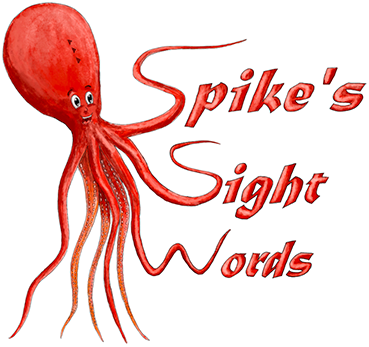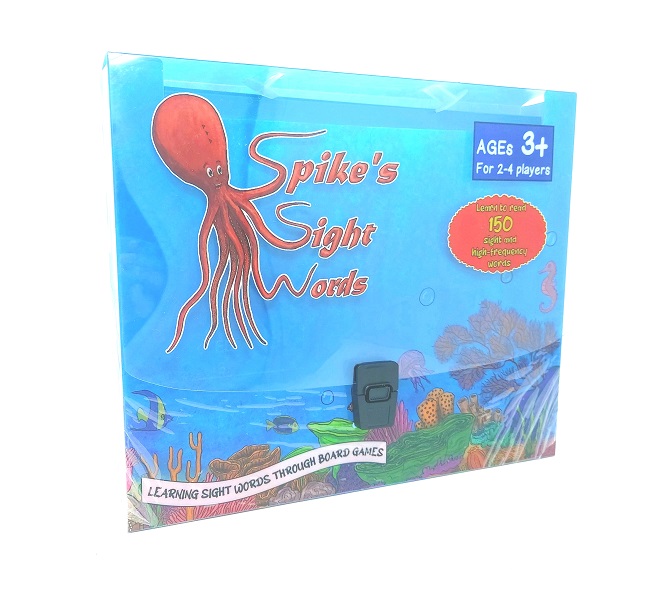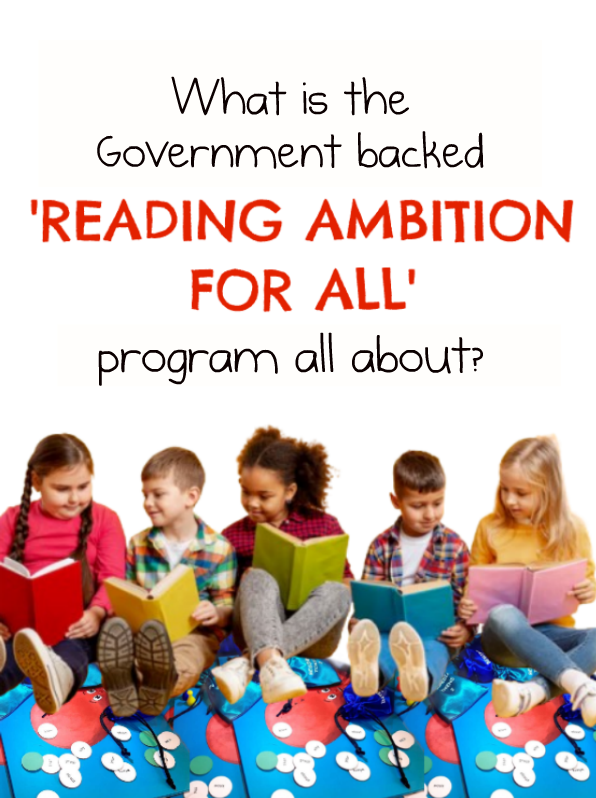
The UK Department for Education (DfE) has a significant focus on improving reading outcomes for all children, with a key initiative being the “Reading Ambition for All” program. This campaign is a professional development program aimed at teachers and school leaders to improve reading skills, particularly for children who need additional support, including those with Special Educational Needs and Disabilities (SEND).
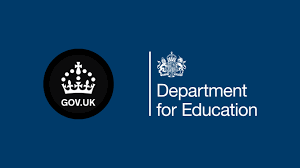
Here are the key aspects of the “Reading Ambition for All” program:
Focus on Professional Development: The program consists of a series of research-based modules designed to provide teachers and school leaders with the latest evidence-based strategies for teaching reading.
Targeting All Children, Especially Those with SEND: A core aim is to improve reading outcomes for all pupils, but with a specific emphasis on providing appropriate teaching, support, and provision for children who are not meeting age-related expectations, including those with SEND.
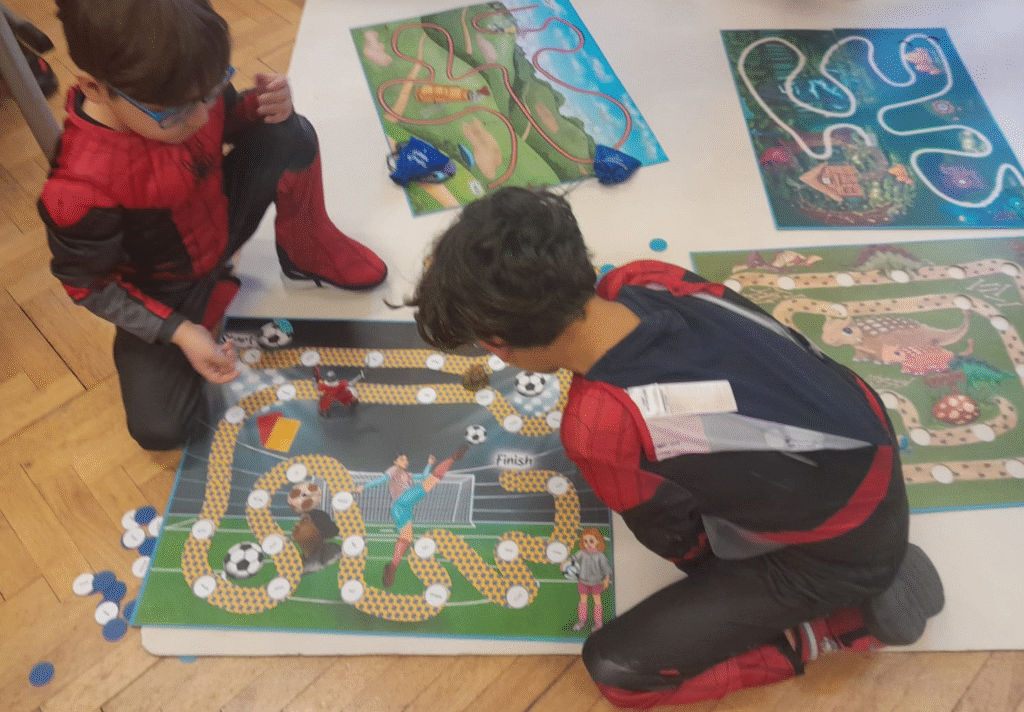
Key Program Aims:
– To improve outcomes for children needing additional reading support.
– To ensure high-quality teaching based on the latest research.
– To use evidence-based strategies to enhance reading skills.
- To promote adaptive teaching for children with SEND in mainstream settings.
- Module Content: The program covers various aspects of teaching reading, including:
Guiding principles for teaching SEND in mainstream schools.
Understanding individual student needs and addressing barriers to learning.
Implementing adaptive teaching and classroom adaptations.
The role of leaders in ensuring success for all pupils.
Specific strategies for supporting children with more complex SEND
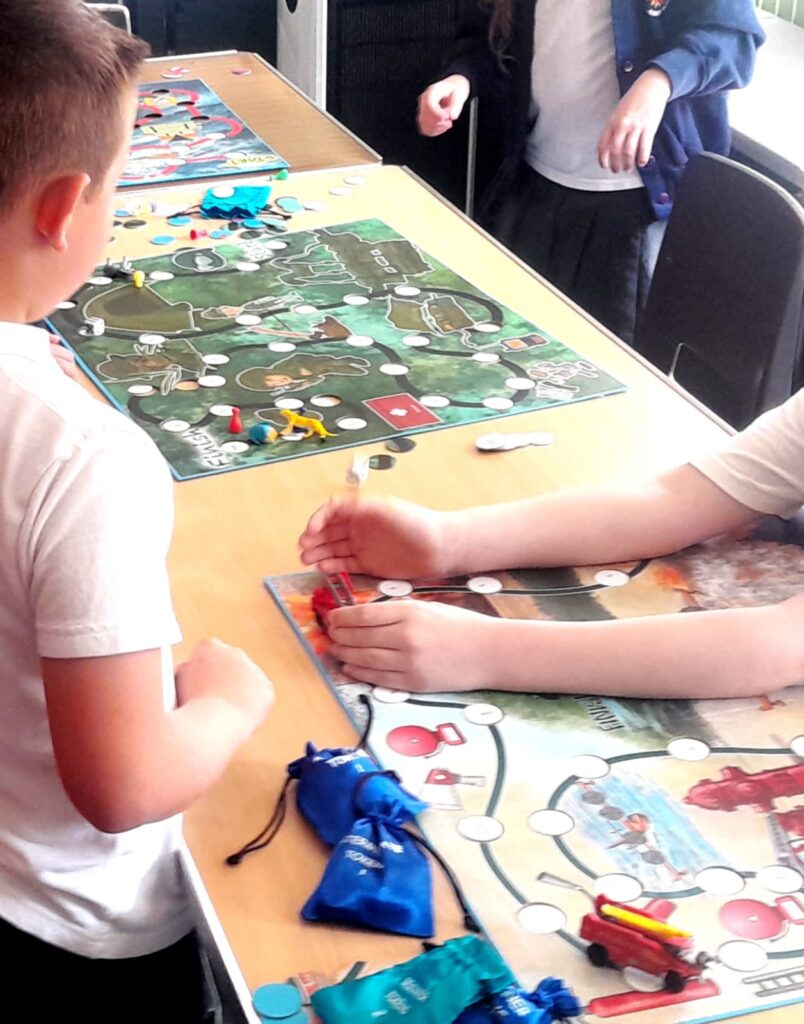
Connection to a Wider Campaign: The “Reading Ambition for All” program is part of a broader government and national effort to improve literacy levels. This includes the recently announced “National Year of Reading 2026,” a DfE initiative in collaboration with the National Literacy Trust, which aims to encourage reading for pleasure and redefine the national reading culture.
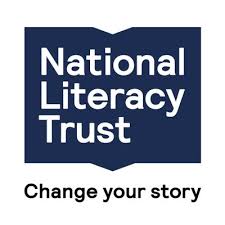
The “Reading Ambition for All” is a five-module professional development program for teachers to improve reading outcomes for children, especially those who need extra support or have Special Educational Needs and Disabilities (SEND).
-
Purpose:To help teachers improve reading skills in children who need additional support, drawing on research-based strategies and adaptive teaching methods for SEND.
-
Modules:The program consists of five modules covering topics such as the guiding principles for teaching SEND, understanding pupil needs, adaptive teaching strategies, and leading reading within a school setting.
-
Target Audience:Teachers and educators in mainstream settings who work with children who need extra help with reading.
The DfE’s overall goal is to ensure that every child gets the best start in life, and they recognise that strong reading and writing skills are foundational to success in school, work, and life. The “Reading Ambition for All” program contributes to this by equipping educators with the tools and knowledge they need to help all children become confident and fluent readers.
Foreword from the Children’s Commissioner for England, Dame Rachel de Souza DBE
Ambition for all – our vision for a school system that works for all children
25 March 2022
As Children’s Commissioner for England, my mission is to make England the best place to grow up in the world. This means the ambitions of every child being matched by the support around them – by their family, school and, where needed, being able to access brilliant mental health and social care services and support for Special Educational Needs or Disabilities (SEND). Wherever a child grows up, whichever school they attend, every child deserves a world class education which is as ambitious for them, as they are for themselves.
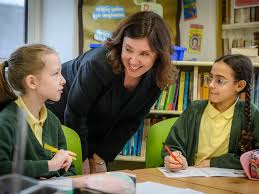
At the same time, I heard too many stories from children who felt that their ambitions were not being matched by those around them. This meant they could not see themselves realising the opportunities available. Grown-ups’ ambitions were too often lower for those who would be classed are disadvantaged or vulnerable. These are not words children use to describe themselves, but they can unwittingly become labels which change the level of ambition we have for a child. We must have the same aspirations and ambitions for all our children, because overwhelmingly they have it for themselves – they uniformly want a fantastic education, a good job, a happy family.
Schools can transform the way children see themselves in the world and help turn aspirations into tangible opportunities and outcomes. What separates out the very best schools is the level of belief they have for each and every one of their pupils. This is what I want for every child in England, wherever they live, whatever their background.
That is why I want to place ambition at the heart of our school system, and the forthcoming Schools White Paper. I want us to strive for:
- Every child to be able to read and write by the end of primary school; and,
- Every child to obtain a Level-2 qualification by the end of secondary school.
Many will say this is not possible, but this misses the point. We need to strive for every child in every school, because if there is one thing I learnt in more than 30 years of education, it is that all children can do amazing things, and every child deserves to be at a school that believes in them. No child should start off in a system which sees their labels before them, or thinks ‘they can’t do this because of where they are from’.
National Year of Reading 2026
The Department for Education (DfE) is a key partner in this initiative, working in collaboration with the National Literacy Trust to launch what they are calling a “reading revolution.” The campaign’s goal is to address the decline in reading enjoyment and daily reading among children, young people, and adults in the UK.
The campaign aims to:
Encourage reading for pleasure.
Bring together communities and national partners.
Reimagine reading for today’s world.
Inspire new readers of all ages.
Help businesses and workplaces champion reading.
The government sees this as a national mission to ensure every child gets the best start in life, as reading is fundamental to success in school, work, and life in general.
The Education Secretary, Bridget Phillipson is calling on parents to lead by example and make reading a daily habit to help reverse the decline in reading for pleasure, to help give kids the best start in life as part of the Plan for Change.
The call comes as the Department for Education and National Literacy Trust join forces to launch a National Year of Reading, starting in January 2026 to kick start a reading revolution. It will reverse the trend as just one in three aged 8 to 18 said they enjoyed reading in their free time in 2025.
Bringing together parents, schools, libraries, businesses and literacy experts, the campaign aims to foster a love of reading for pleasure in children and young people, ensuring all children get the best start in life.
Reading for pleasure isn’t just a hobby. It’s linked to a range of benefits including stronger writing skills, improved wellbeing and confidence, and even higher future earnings, with new data showing those proficient in reading and writing in primary school earn £65,000 more over their lifetime.
The government inherited a system which is holding too many children back from future success with over a quarter leaving primary school not meeting the expected standard in reading. This grows to 40% and 59% respectively for children from white-working class backgrounds and those with special educational needs.
The Year will build on the action already underway to drive high and rising standards in literacy including investing £27.7 million to support the teaching of reading and writing in primary school and targeted support for struggling readers in secondary school, as well as the ongoing curriculum and assessment review.
The campaign contributes to the government’s driving mission to break the link between a child’s background and what they go on to achieve and comes as the Education Secretary sets out her vision for ensuring every child gets the best possible start in life and starts school ready to learn including by boosting early literacy skills through the expansion of the government’s network of English Hubs.

Our take on all this…
Ever since I came up with the idea, I was aware that children learn differently. They have different styles as was demonstrated with my own children. My daughter managed to learn to read relatively easily using just a ‘pen and paper’. My son seriously struggled with this method and I found out he responded more to a playful and engaging way of learning. And so, having written this article, I am REALLY pleased that so much emphasis is going into getting children into reading again. I won’t go through all the statstics now but it is worrying how so many children cannot read to their expected level and some don’t ever have any books in their homes! (I find this shocking as my own home has around 500 children’s books in it!). Having ‘invented’ these board games which are so popular with struggling readers and those with SEND, I am DELIGHTED to hear that so much training and research is going into helping these children. Not everyone learns the same and i truly believe that children deserve to have a resource that suits them. Which one of these board games would YOUR child or student like?
LET’S GET MORE KIDS READING AGAIN!
